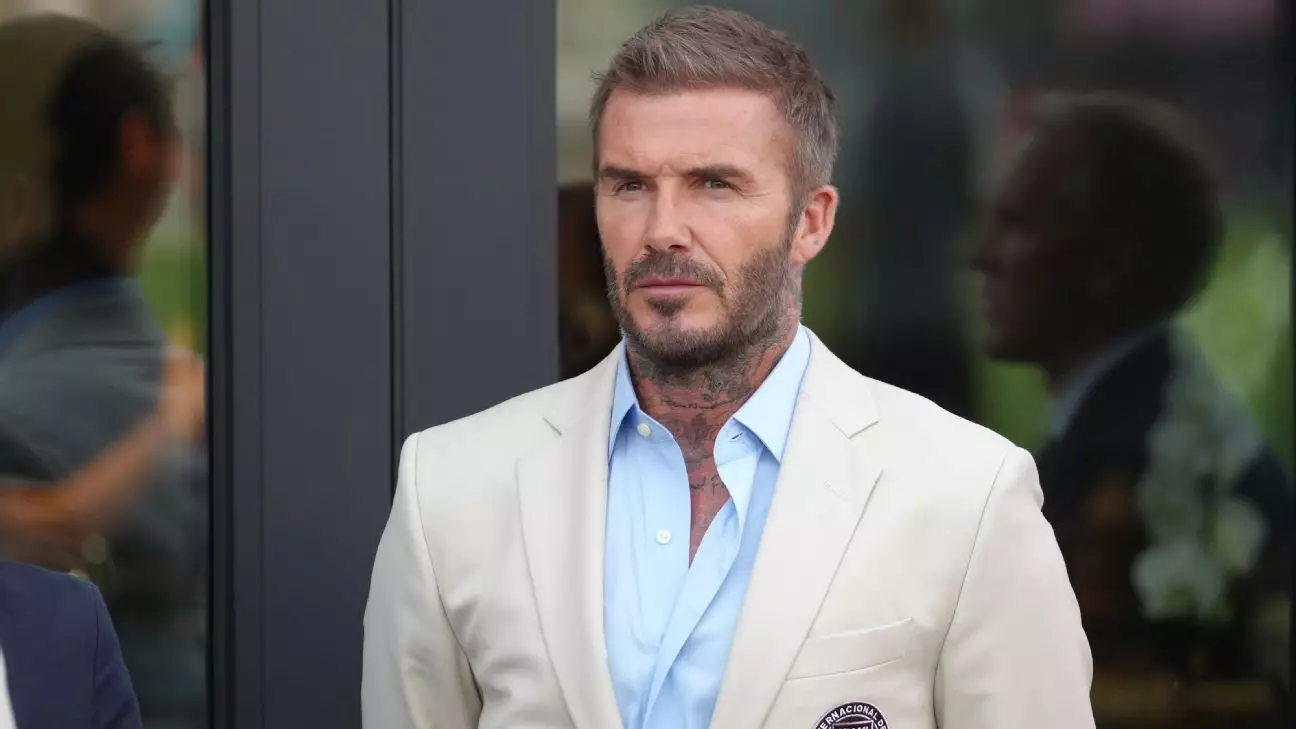As the dust settles on Manchester United’s disappointing postseason tour of Asia, a familiar voice from the club’s storied past has emerged to express concern. David Beckham, a legend of the Red Devils, didn’t mince words when addressing the unacceptable behavior exhibited by some players, particularly in light of their historical significance and the standards they should embody. This discourse shines a spotlight on the disconnect between modern footballers and the clubs they represent, emphasizing the need for accountability and respect.
Cultural Disconnect and Misguided Actions
The recent incidents involving players like Amad Diallo and Alejandro Garnacho raise more than just eyebrows; they highlight a troubling pattern of behavior that diverges from the values historically associated with Manchester United. Diallo’s response to alleged insults, communicated through an obscene gesture towards fans, and Garnacho’s confrontation with a spectator suggest a lack of emotional intelligence and a disconnect from the responsibilities that come with wearing the illustrious red jersey. These actions are not merely slip-ups; they reflect an underlying issue that demands attention.
Gone are the days when players understood the significance of their actions both on and off the pitch. Beckham’s lament that players are failing to respect the badge and the fanbase indicates a growing concern that the essence of club loyalty and pride may be waning. The expectation is that players should honor their legacy and the sacrifices fans make to support them. This dissonance raises the question of whether today’s players truly grasp the implications of their role within the hallowed traditions of Manchester United.
Examining the Broader Impact
The ramifications of such behavior extend far beyond isolated incidents. Manchester United’s recent performances, including a lackluster tour and an unprecedented low finish in the Premier League, have already frustrated legions of supporters. Players’ actions can distort public perception, diminishing the club’s reputation and alienating the fanbase that thrives on a shared commitment to excellence. If individuals within the team fail to carry their weight in representing the club’s ideals, the entire institution suffers.
Moreover, this discourse against the backdrop of their Asian tour—initially intended to foster goodwill and promote the brand—brings to light an important lesson in professionalism. The sight of a high-profile club engaging in subpar performances, both on the field and in fan interaction, underscores a need for comprehensive self-awareness and emotional maturity among athletes, particularly those in the public eye.
Creating a Positive Legacy
Beckham’s impassioned plea for respect serves as a poignant reminder of the responsibilities that accompany fame. Players must recognize that they are not merely athletes; they are role models whose conduct reverberates beyond the pitch. Legacy is built not only through victories but also through interactions that honor the collective spirit of the club and its supporters.
The next steps for Manchester United must involve introspection, not only from the players but from the organization as a whole. It’s essential to cultivate an environment that encourages integrity, respect, and mutual understanding between players and fans, ensuring that the future of the club honors the rich tradition established by legends like Beckham.

